|
Bloody Foreigners
Bloody foreigners, coming over here and writing good crime novels…how very dare they?
Well, four of them did dare; in fact were quite brazen about it, when they took over the splendid London Review Bookshop (just around the corner from my London office) last month for a rather jolly event sponsored by a consortium of publishers - Bitter Lemon Press, Europa Editions, Istros Books, Maclehose Press and Stork Press – entitled More Bloody Foreigners.
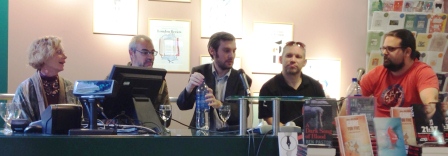
Under the superb chairmanship of heart-throb Jake Kerridge (who surely must have a degree in herding cats), crime writers from Italy, Poland and Montenegro were put through their paces in a fabulously entertaining evening. [From left to right: Ben Pastor, Marco Malvaldi, Jake Kerridge, Mariusz Czubaj and Andrej Nikolaldis.]
If only someone had been sober enough to take notes, I am sure a good academic paper could have resulted from the evening’s discussions, which ranged from the guitar playing of Jimmy Page to political philosophy, from the planting of eucalyptus trees on Tuscany’s ‘mosquito coast’ by the Fascist regime of the1930s, to the challenge of having a hero (Ben Pastor’s Martin von Bora) who ‘wears the most hated uniform in Europe’.
 
[Ben Pastor and Marco Malvaldi meet Jake Kerridge]
When asked which foreign crime writers these bloody foreigners enjoyed reading in translation, the answers were: Georges Simenon, Rex Stout, Agatha Christie and John D. MacDonald, which shows they all have extremely good taste, but especially the Polish delegation.
The fabulous Bloody Foreigners evening was followed the next day by a sumptuous luncheon at one of London’s finest eateries, hosted by the BFs’ publishers, where a select few got to rub shoulders not just with the authors and translators, but with crime-writing royalty including Maxim Jakubowski, Christopher Maclehose and of course Professor Barry Forshaw.
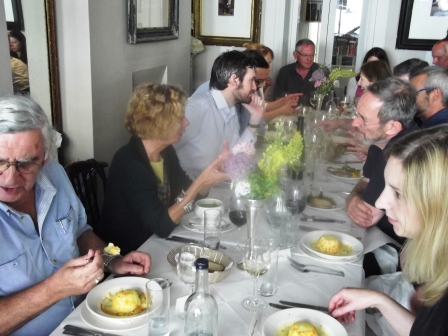 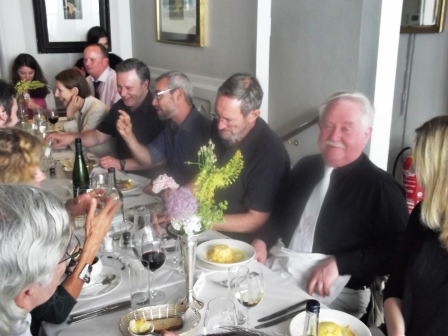
Picture credits: Ayo Onatade and Katherina Bielenberg.
And Yet More
There was no rest for the wicked last month as duty called and I was summoned to attend a champagne reception at a very upmarket venue on Pall Mall (conveniently between the Athenaeum and the Travellers Club) in honour of best-selling American author Lisa Jackson.
 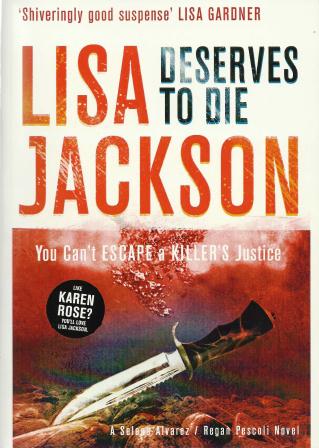
The occasion – if one ever needed an excuse to be in such sparkling company – was to celebrate Lisa’s new novel Deserves To Die, her first with her new UK publisher Mulholland, who had the tact and foresight to provide qualified medical staff to take care of the more elderly and infirm guests whilst the younger ones enjoyed themselves.
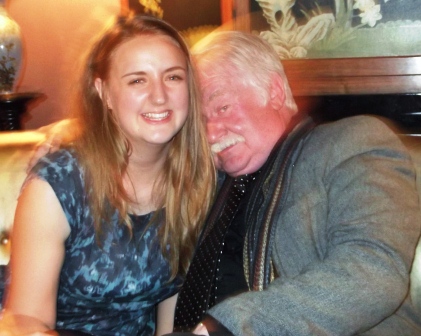
The Art of Reading Well
Earlier this year I had the privilege of attending, in his home town of Pisa, a lecture by Italian crime writer Marco Malvaldi on ‘the art of being rude in Tuscany’, based on the axioms of the philosophy he expounds in his comic crime novels in the ‘Bar Lume’ series. In his new book (at least in the UK), however, he has produced ‘a very polite and noble novel’ – well that’s what he wrote when he signed the copy which, for legal reasons, I had to buy at the Bloody Foreigners event.

The Art of Killing Well, from Maclehose Press, is certainly a charming read, with a sweet plot, some sour characters, a spicy setting, some pungent jokes and all the ingredients simmered into a very satisfying Secundo, the Antipasto being provided by the fact that the central figure is Pellegrino Artusi – the man who ‘put the Italian into Cooking’ with his seminal work The Science of Cooking and the Art of Eating Well of 1891.
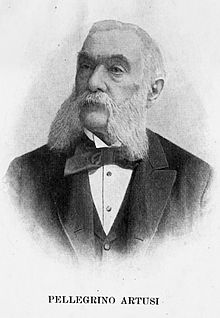
On a recipe-collecting mission, Artusi arrives at the castle of a Tuscan Baron in the summer of 1895, but very quickly finds murder on the menu. {Spoiler Alert: the butler didn’t do it!} Few things put our epicurean hero off his dinner though, and inspired by the new Sherlock Holmes novel he’s reading (though in truth he reminds me more of Nero Wolfe), Artusi takes on the role of amateur detective and assists the local (socially intimidated) police to solve the mystery.
Funny, sharp and quite delightful this is crime fiction as light, frothy and flavourful as a good zabaglione.
Yet More Parties
An invitation has just reached me for this year’s What’s Your Poison? summer Crime Party at Heffers Bookshop in Cambridge, which now occupies the site of St Ignatius College (famously known as ‘Gnats’ to its alumni), is to be thrown on Thursday 17th July at 6.30 p.m.

Among the traditional quizzes, strawberries and pitchers of Pimms, visitors will spot many a famous crime writer, including John Harvey, Jim Kelly, Christine Poulson and Nicola Upson among, no doubt, many others. I am reliably informed that tickets for the event are available at very reasonable rates from: https://summer-crime-party.eventbrite.co.uk.
Ones to Watch Out For
Time seems to go by very quickly as one gets older. Before summer has had a chance to takes its boots off, the publishing industry is already deciding what I will be reading in the Autumn; a time usually spent collecting firewood, raiding the hedgerows for fruits and berries and bottling up last year’s brew of barley wine.
I have been sorely tempted by early sight of the covers of two novels which are certain to be on the bestseller charts in the Michaelmas Term.
{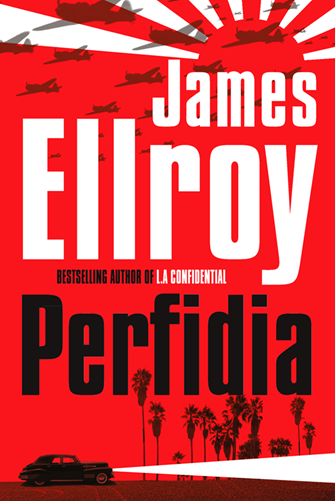 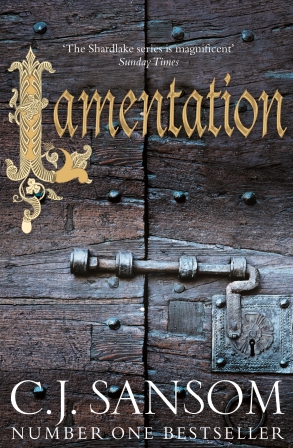
In September, fans of James Ellroy will be positively gagging to get their hands on all 700 pages of Perfidia from William Heinemann, the first instalment of a new ‘L.A. Quartet’ which begins in December 1941 after the Japanese attack on Pearl Harbour (or Pearl Harbor as it will probably be spelled). If the setting of Los Angeles at that particular time brings to mind the staggeringly unfunny Steven Spielberg ‘comedy’ 1941, then I think can reassure readers that Mr Ellroy will be taking a far more serious, darker, look at events.
Flipping back almost 400 hundred years, C. J. Sansom’s Lamentation from Mantle in October, has his popular hero Shardlake summoned to Whitehall Palace to aid his former mentor Catherine Parr. It is 1546 and Catherine is the Queen and the sixth wife of the dying King Henry VIII, but Catherine has recent a secret book – a ‘Lamentation’ – which could provide useful ammunition to Catholic enemies, especially as it has mysteriously disappeared.
Some of the action in Lamentation takes place in the sordid world of London publishing and printing (plus ça change) in the 16th century and coincidentally a fascinating novel (not a mystery) about the very first days of printing appears from Headline in September.

Guttenberg’s Apprentice is the debut novel from Alix Christie, a charming American journalist and foreign correspondent who is also, I believe, an accomplished printer herself, specialising in hand-made books, which is a marvellous skill to have and a fine tradition to uphold. In a way, it’s rather sad that Guttenberg’s Apprentice has to appear in an electronic edition, but I suppose it must. How much nicer it would be if copies were made available in public spaces, chained to lecterns, that would be Old School, that would.
And speaking of Old School, I am reminded of the late F. E. (‘Bill’) Pardoe, who for many years was both crime fiction reviewer for the Birmingham Post and the organiser of the Crime Writers’ Association’s gold and silver dagger awards. Bill’s other hobby, apart from crime fiction, was hand-making his own writing paper and he was quite skilled at it. Fortunately for me, Bill made paper of the highest quality and used it sparingly, so I received relatively few angry epistles from him when our reviewing opinions differed, as they often did; most famously over the novels of Carl Hiaasen, whom I maintained wrote very funny books but Bill disagreed quite vociferously.
Carnal Knowledge
A new novel form Arcadia Books, Carnal Acts, comes with a conundrum. The publisher bravely challenge readers to identify the ‘acclaimed British crime writer’ behind the pseudonym ‘Sam Alexander’ and to ‘Tweet your answers to @arcadiabooks1’ using the ‘hashtag’ #WhoIsSamAlexander?
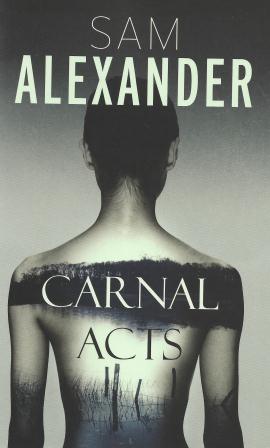
Given that the novel is a 400-page+ example of ‘Northumbrian Noir’ exploring sexual, psychological and economic abuses (and Albanian mafia-run brothels) in the north-east, written in 155 snappy chapters, I would have thought the identity of the author was fairly obvious.
If only I knew what ‘Twitter’ was and why one needed a ‘Hashtag’, then perhaps I would enter the competition and win a prize – if there is one.
Apart from that, how did you enjoy the show?
I had naively assumed that having read (at least twice) Gore Vidal’s wonderful historical novel Lincoln and seen the film (just the once) Abraham Lincoln Vampire Slayer, that I knew all that I needed to about the 16th President of the United States.
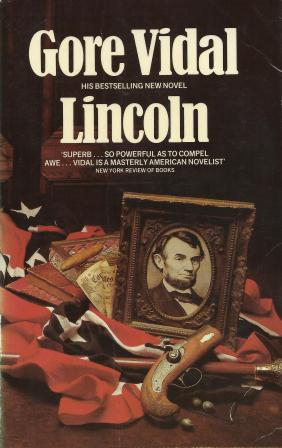 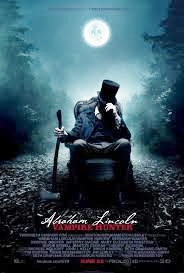
Clearly I did not, as American bestseller Steve Berry is determined to prove in TheLincoln Myth out this month from Hodder. I cannot give away the convoluted conspiracy-theory plot (as I haven’t read it yet!) but at first glance it seems to involve that hotbed of treason, the Constitutional Convention of 1787, the Mormon pioneers who settled in Utah in the 1840s, Justice Department agents and gunfights in modern-day Denmark (where an awful lot of bad guys are shot with repetitive accuracy “in the chest”), the White House, an elder of the Mormon Church (about which Gore Vidal had several witty epithets), oh, yes, and Abraham Lincoln in 1861 at the start of the Civil War.

Change as good as a rest
One of the most dramatic changes in setting undertaken by a crime writer – at least that I can think of – must surely be that by Adrian McKinty, who hails from Northern Ireland and is best known for his gritty crime novels set there. In a fascinating about-face, McKinty has set his latest novel in 1906 and on a remote Pacific island in the South Seas.

The Sun Is God, published this month by Serpent’s Tail, is based on real historical incidents in a remote German colonial possession, which Adrian McKinty (who now lives in Australia) researched by camping on Kabakon Island and eating only coconuts. It must have been quite a change from researching crime novels on the shores of Loch Neagh, subsisting only on Twix bars and Harp lager.
|
|
Stop Press
Breaking news for movie buffs and crime fans comes from publisher Head of Zeus, who, appropriately enough, will publish Cold in July in July.
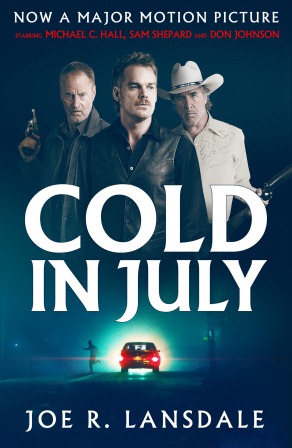
The paperback original, by Joe R. Lansdale, ties in with the release of the film version which stars Michael C. Hall (of Dexter fame) and stalwarts Sam Shepherd and Don Johnson.
Table Talk
It was a delight, as it always is, to have lunch with the legendary Len Deighton in a favourite, family-run Japanese restaurant in London (the location of which is Classified) in the company of Rob Mallows, who runs the excellent Deighton Dossier blogspot.
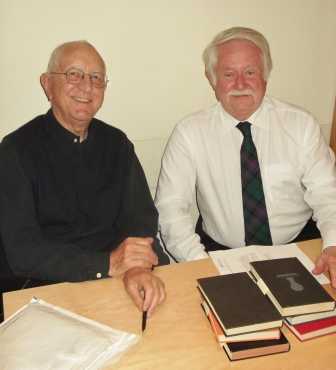
The conversation ranged widely and intelligently over subjects including the German railway network on the eve of World War I, Len’s involvement with the film Oh What A Lovely War, thriller writer Desmond Bagley, the art of frying tempura, Stanley Kubrik, the Holy Roman Empire, the excellence of the V-Pen (disposable fountain pen) and the economic history of 15th century Florence. As I always do after such pleasant interludes, I wish I had taken notes.
Roseblood
No, not a misquote of the famous last words from Citizen Kane but rather a perfectly timed historical thriller from the Dean of History Mystery, Paul Doherty.
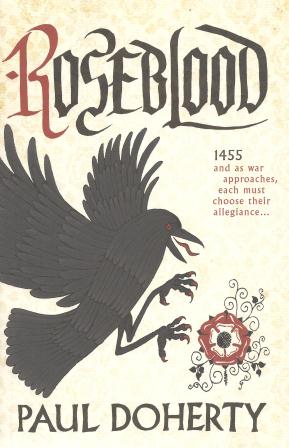
Roseblood, from Headline is, I think, Paul’s 101st novel and is set in 1455 with England poised precariously on the brink of civil war as the Lancastrian-Yorkist power struggle for the throne enters its bloodiest phase, the sides famously characterised by red and white roses. Publication is perfectly timed in the year that will see the final burial of King Richard III, whose death at the battle of Bosworth in 1485 marked the end of the Wars of the Roses, in Leicester Cathedral. I certainly hope to attend the funeral service, where I will, of course, be sporting a white rose.
Reds under the Eiffel Tower
One of my great personal pleasures of this year’s Crimefest was the chance to meet veteran French crime writer, political activist and economic historian, Dominique Manotti. In the company of Maxim Jakubowski, whose services as translator were often called upon, we discussed the importance of translators in fiction and in particular the higher regard in which Edgar Allan Poe is held as a writer in France (where he was translated by Baudelaire) than in England or perhaps even in America. The discussion seemed to segue seamlessly on to the subject of James Ellroy, of whom Manotti is a huge fan and, I discover, has in the past been labelled ‘The French, female, James Ellroy’. I was therefore looking forward to reading Dominique’s latest novel Escape, published here by Arcadia Books.
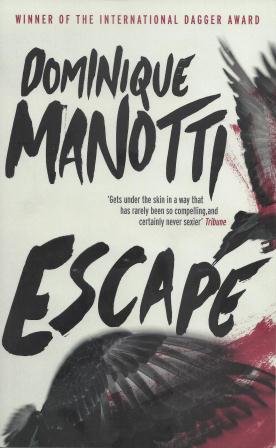
Manotti clearly has a political agenda and writes what have been described as ‘social detective novels’ rather than whodunits or action-packed thrillers. Like Ellroy she tends to delve into recent historical events to uncover political skullduggery and social corruption. Escape is set in the late 1980s and centres on the community of left-wing Italian political activists and intellectuals living in Paris (fairly comfortably it seems) much as (ironically?) the White Russian émigrés who flocked there after the October Revolution in Russia.
Into this community arrives a young petty criminal, Filippo, whose main claim to fame is that he escaped from an Italian prison with his cell-mate Carlo, a former Red Brigade activist. On the run, the two split up and soon Carlo is shot dead during a bank robbery, leaving Filippo to make his way to Paris to seek sanctuary with Carlo’s ex-lover, who sees conspiracy theories at every turn. In a slightly surreal twist, Filippo turns out to be one of those writers who has written more books than he’s ever read (i.e. one) and his debut novel – about an escaping Red Brigade activist shot during a bank robbery – is an immediate best seller, even in the running for a major literary prize (which makes French intellectuals even more dangerous!).
This is not a conventional crime novel, but an interesting study of paranoia, both political and personal, which raises many questions about the value and morality of violent political action but provides tantalisingly few concrete answers.
I am of such great age that I remember the years when student militants turned to violence across Western Europe and it was indeed a baffling and frightening time. My closest contact with would-be urban guerrillas, fortunately, was when I bought a house previously used as the headquarters of a cell of the Angry Brigade – and well known to Special Branch. I have no opinion on the previous occupants’ political aims and theories, but I can say that they knew bugger all about damp courses or guttering.
Not Single Spies
Devotees of espionage fiction, or ‘spy-fi’, will be counting the days to October 21st when the new David Downing novel is published by Old Street Publishing.
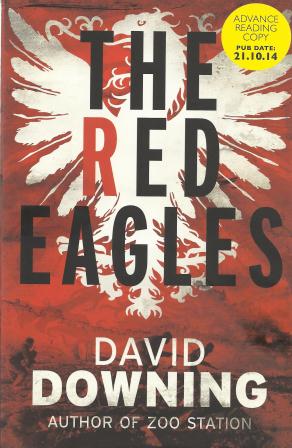
Regular readers of this column will know that it long championed David Downing’s ‘Station’ series which had each convoluted tale of spying, double and triple cross, named after a railway station in wartime Berlin. In The Red Eagles, Downing returns to the setting he utilised so brilliantly in Potsdam Station – a crumbling Berlin at the end of the war and a deadly chase by various intelligence agencies to secure atomic secrets.
I am personally delighted to see David Downing returning to WWII after his recent foray into WWI with Jack of Spies, which I am afraid didn’t quite cut the historical mustard for me.
As I am lucky enough to have been sent an advance proof copy, I will spend the summer trying to work out ways of not giving away the ending. (I don’t suppose “Hitler didn’t get the atom bomb” really needs a Spoiler Alert warning, does it?).
For those who cannot wait for their spy-fix – well, you don’t have to, thanks to publishers Bloomsbury, who have just released the new Liz Carlyle thriller by the former Director General of MI5, Dame Stella Rimington, who now has the good taste to live in East Anglia.
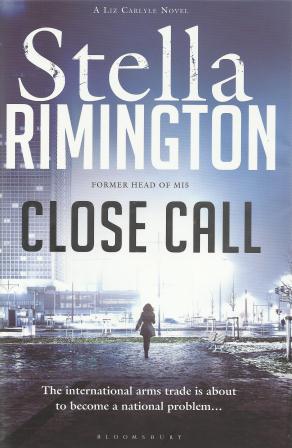
Coincidentally, Dame Stella’s heroine Liz Carlyle – on the hunt for illegal weapons destined for jihadist terrorist – features, as all good spy thriller do, skullduggery in where else but Berlin.
In an idle moment I may be tempted to list all the spy novels over the last 50 years – since the heyday of Len Deighton’ Funeral in Berlin, Le Carré’s Spy Who Came in from the Cold and Adam Hall’s Berlin (Quiller) Memorandum – in which the city has played a starring role. However, somebody with far more spare time on their hands has almost certainly done such a thing already on the jolly old interweb, if only I could be bothered to Goggle it.
A Plethora of Awards
We seem to be in the middle of the ‘long-list’ and even ‘short-list’ season for awards for crime writing, which made me stop and try to work out exactly how many awards there were for the genre these days. Limiting myself to awards for titles in English, I came up with: the CWA Daggers, the Edgars, the Anthonys, the Macavitys, the Barrys, the ITW Thriller Awards, the Shamus Awards, the Derringer Awards, the Spinetingler Awards, the Ned Kellys, the Arthur Ellis Awards, awards given at Crimefest and Harrogate, the Scribe Awards, the Bloody Words Light Mystery Awards, the Romantic Times Reviewers’ Choice Awards and the Spotted Owl Award.
I am sure I have missed lots of others and given that each of them has multiple categories, there seems no good reason why every writer can’t win at least one.
A Littell Light Reading?
I have started to read, on the recommendation of several French intellectuals, The Kindly Ones by Jonathan Littell, which I am sure you know was written in French and originally published as Les Bienveillantes, winning the Prix Goncourt in 2006. The novel is a mesmeric, utterly chilling personal history of a Nazi war criminal or ‘turgid, sensationalist and woodenly pretentious’ depending on which of the highly divergent reviews you may have read.
 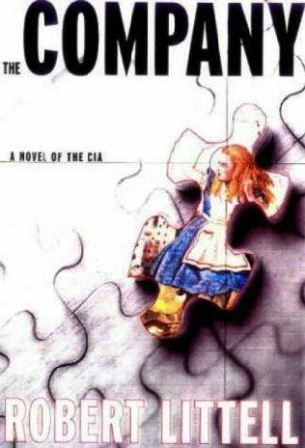
My reviewing jury is still out as I haven’t even got to page 750 yet – and that’s not a misprint. In fact I have a sneaking suspicion that in writing the 984-page Kindly Ones, Jonathan Littell was competing with his father Robert, whose superb 2002 novel of the CIA, The Company, clocked in at a mere 895 pages.
Southern (Hemisphere) Comfort
I have made no secret of my admiration for the current crop of superb crime writers from South Africa, and have already tipped Mike Nicol’s Of Cops & Robbers as one of my favourite crime novels of the year. Well, now it has competition from Deon Meyer’s masterful new thriller Cobra, out at the end of this month from Hodder.
To call Cobra a ‘police procedural’ is to do it a disservice. True, it follows the investigation of a triple murder/kidnapping by Benny Griessel (Meyer’s sympathetic series hero) and his fellow detectives of the elite Hawk Unit in utterly convincing detail, but there is an international political element to the crime, which Benny has to face up to whilst dealing with the personal problems all fictional detectives have (though those are also convincing in Meyer’s capable hands).
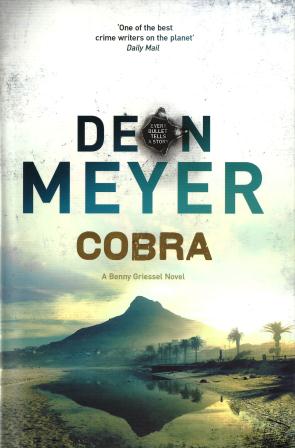
Why, for example, is the British embassy in Cape Town so reluctant to reveal the identity of the (British) kidnap victim? (The scene where Benny and his boss confront the resident embassy spook is priceless). And why are spent cartridge cases found at the scene of the crime engraved with a spitting cobra and the initial NM?
This is terrific stuff: fine plotting, superb characterisation, a constant thread of suspense, a multi-ethnic cast and an intriguing setting (Cape Town itself and the wine-producing region around Stellenbosch). It also comes with a glossary of South African terms and if Cobra doesn’t win at least one major prize this year, then someone need a good snotskoot bliksening.
Still in the southern hemisphere and well worth flagging up is Garry Disher’s new novel Bitter Wash Road, from Text Publishing later this month. A well-known writer in his native Australia in a number of genres, it is amazing that his crime fiction is probably better known in Germany and the USA than in the UK.
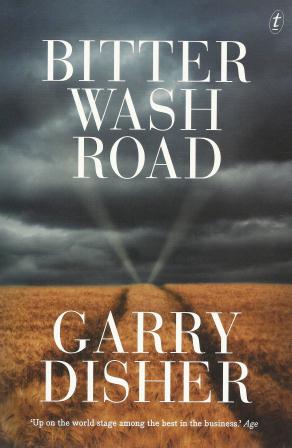
I hope that situation will change with Bitter Wash Road, where a lone cop (a whistle-blower and therefore distrusted by other cops) patrols the badlands of South Australia, for this puts Disher up there with the crime-writing elite and comparisons with the work of Ian Rankin, John Harvey and Michael Connelly are not out-of-place.
If for nothing else, Disher’s descriptions of the rugged landscape and its even more rugged inhabitants in spare, poetic prose sets him a good head and shoulders above the crowd.
Welcome Back
This week sees a welcome return to print of two of spy-fiction’s hard men – David Callan and John Craig – after an absence of more than 35 years, both having sprung originally from the prolific pen of James Mitchell in the 1960s.
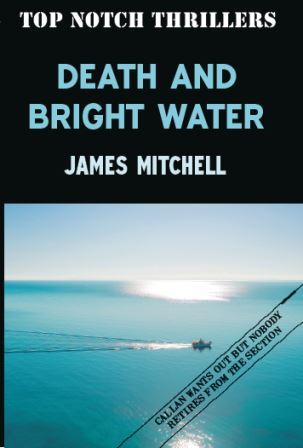 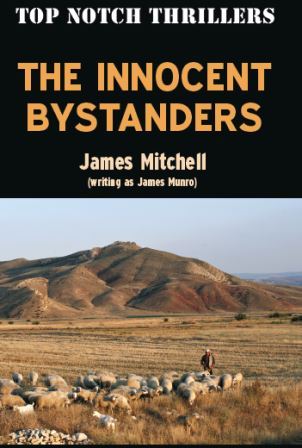
If I may be allowed to say so (of course I’m allowed, I write this bloody column), the new Top Notch Thriller editions of Death and Bright Water and The Innocent Bystanders must be the reissues of the month.
Death and Bright Water was the third full-length ‘Callan’ novel, first published in 1974, when the TV series Callan starring the late Edward Woodward had already achieved iconic status. The plot takes Callan – ironically recommended for a dangerous ‘wet job’ by the KGB! – to Crete and just to make life more difficult, he takes Lonely along to do a bit of house-breaking.
The Innocent Bystanders features an earlier creation of James Mitchell (under the pseudonym James Munro), the hard-as-nails secret agent John Craig, who was in the mid-Sixties seen by many as the natural successor to James Bond. The Innocent Bystanders, first published in 1969, was actually the fourth and last appearance of John Craig (by then Callan had taken off) but was the only Craig novel to be filmed, in 1972 by Peter (Italian Job) Collinson and starring Stanley Baker, Geraldine Chaplin and Donald Pleasance. The film’s credits said (rather cheekily) that the screenplay was ‘by James Mitchell from the novel by James Munro’.
Girl Power
Last year I made several disparaging comments about the large number of crime novels featuring ‘lone man walking away’ on their covers. I am delighted to say that my concerns have been addressed by those in positions of supreme power in publishing and the edict has clearly gone out that this year it must be ‘lone woman walking away’.
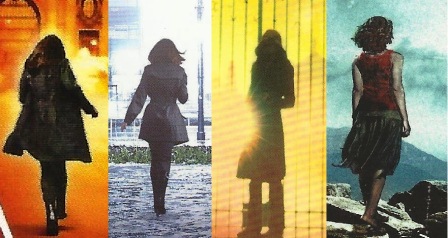
See how many such images you can spot between now and the end of the year. There are, as usual, no prizes.
Pip! Pip!
The Ripster
|